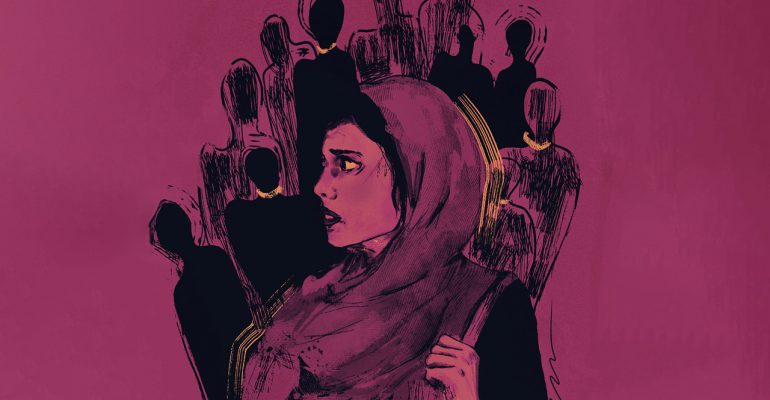Islamophobia as a form of emotional violence
June 3, 2023 2024-03-04 14:25Islamophobia as a form of emotional violence

Islamophobia as a form of emotional violence
Emotional violence is a form of abuse to control, isolate or frighten individuals. A common misbelief is that physical violence causes more serious and long-term harm than emotional violence. In fact, the imprints of emotional abuse are similarly real and long-lasting.
The fourth Islamophobia in Australia report which analyzed 930 incidents reported to the Islamophobia Register Australia in 2014-2021, found that verbal abuse hurts as much as physical abuse.
The research conducted by the Islamophobia Register Australia, Charles Sturt University and Islamic Science and Research Academy (ISRA), reveals that of the 515 incidents occurred in real life circumstance, 62% were in the form of verbal threats and intimidation in contrast to 23% physical attacks and 15% property damage. The ratio of those expressing a long-term impact was similar both for verbal (24%) and physical (25%) abuse.
Inaction by surrounding people aggravated the emotional impact on victims. Almost three quarters (72%) of those cases involved only the perpetrator and victim in the absence of bystander intervention. People’s non-interference in preventing these behaviors deepens the damage to the victims to the point they become traumatized or even avoid being alone or hesitant about traveling to the places with no diversity present.
Avoidance behavior was prevalent in two thirds (66%) of the physical cases. Yet, the impact was deeper since 81% of those showing avoidance behavior also expressed an emotional impact (in contrast to those who felt no emotion and did not show any avoidance behaviors 65%). The most commonly felt emotional impact by those showing avoidance behavior was fear and fright followed by humiliation and disappointment.
The statistics derived from the reported cases of Islamophobia inform the public and policy makers about the harm caused by Islamophobia and urge everyone to combat Islamophobia in their respective areas to protect the wellbeing of the public and contributed to the public health.
Source: Australasian Muslim Times








